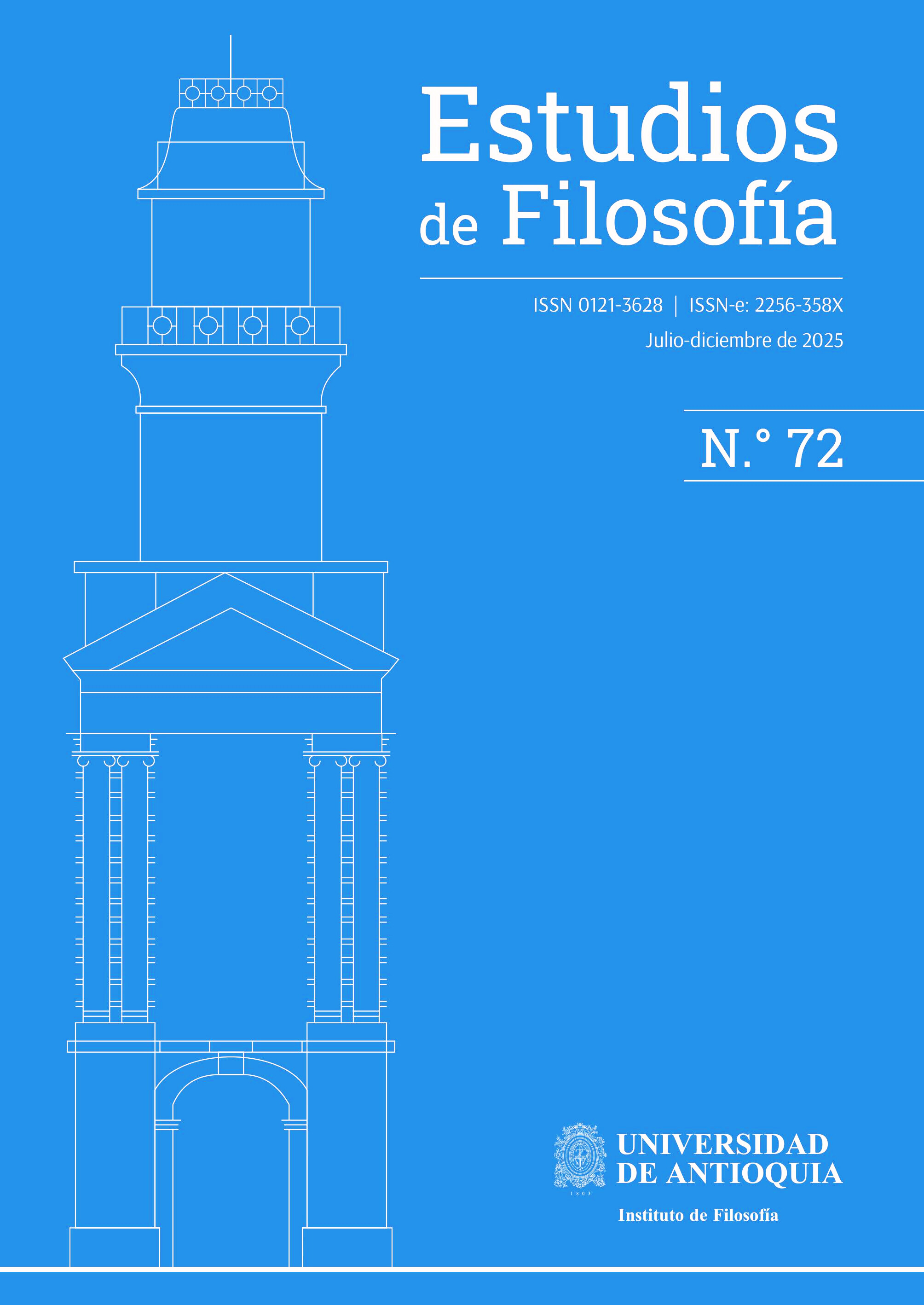Pablo Melogno’s legacy: interpreting Kuhn’s work on science education
DOI:
https://doi.org/10.17533/udea.ef.356242Keywords:
Kunhn's Philosophy, Science Education, Educational CritiqueAbstract
As this paper coincides with the first anniversary of Pablo Melognos passing, it delves into his profound contributions as a distinguished philosopher of science to the field of science education. Focused on his unique perspective shaped by an extensive exploration of Thomas Kuhn’s philosophy, the paper aims to elucidate Melogno’s distinctive insights into science education. The methodology employed involves a theoretical and exploratory analysis of Melogno’s limited but qualitatively rich works on science education. Melogno’s perspective on science education emerges in a deep engagement with Kuhn’s philosophy. Despite shifts in his assessment of Kuhn’s ideas, Melogno’s core vision about science education remains steadfast throughout all his texts. By advocating a holistic understanding of the history of science, Melogno emphasizes the importance of cultivating critical thinking skills in students, while not forgetting to teach scientific concepts, methods, and theories. His stance rejects the notion of total ruptures in scientific paradigms as a way to avoid indoctrination. Furthermore, the paper proposes investigations into the relationship between Melogno’s defense of partial ruptures, fostering a more nuanced historical perspective and promoting critical thinking in science education. In essence, Melogno’s legacy extends beyond the footsteps of Kuhn, as he carved his own philosophical path, leaving indelible marks on the landscape of scientific thought.
Downloads
References
Bailey, R. (2006). Science, normal science and science education: Thomas Kuhn and education. Learning for Democracy, 2(2), 7-20.
Daston, L. G., Peter. (2007). Objectivity. Zone Books.
Giri, L., Melogno, P., & Miguel, H. (Eds.). (2023). Perspectives on Kuhn: Contemporary Approaches to the Philosophy of Thomas Kuhn. Springer. https://doi.org/10.1007/978-3-031-16371-5
Kuhn, T., (2017). Desarollo científico y cambio de léxico. Conferencias Thalheimer 1984 (Melogno, P., Miguel, H., & Giri, L. Eds. L. Giri, Trans.). FIC-Udelar/ANII/SADAF.
Kuhn, T. (1996). The structure of scientific revolutions. University of Chicago Press. (Original published in 1962). https://doi.org/10.7208/chicago/9780226458106.001.0001
Melogno, P. (2013a). Dogmatismo y adoctrinamiento en educación. Consecuencias y alternativas a la obra de Thomas Kuhn. Paper presented at Actas del II Congreso Latinoamericano de Filosofía de la Educación. Montevideo. Universidad de la República.
Melogno, P. (2013b). Límites y condiciones del sentido crítico en la educación científica. In M. Cabrera, S. Kanovich, P. Melogno, L. Pereyra (Comps.). Desafíos de la Educación Científica (pp. 117-139). FIC/Centro Universitario de Paysandú.
Melogno, P. (2015). Thomas Kuhn y la educación científica. In: A. D. Genis & M. Camejo (Eds.). Epistemología y educación. Universidad de la República.
Melogno, P. (2023). Kuhn’s ‘The Natures of Conceptual Change’: the search for a theory of meaning and the birth of taxonomies (1980–1994). International Studies in the Philosophy of Science, 1-17. https://doi.org/10.1080/02698595.2023.2198861
Popper, K. R. (1970). Normal science and its dangers. In I. Lakatos; & A. Musgrave (Eds.).
Criticism and the Growth of Knowledge (pp. 51-58). Cambridge University Press. https://doi.org/10.1017/CBO9781139171434.007
Oliveira, D. G. S. (2024). Rethinking Science Education: Fostering Feyerabend’s View of Pluralism and Proficiency. In K. Kenklies & S. Engelmann (Eds.). Education for a Free Society Paul Feyerabend and the Pedagogy of Irritation (pp. 1-25)9. Peter Lang Publishing Press.
Rowbottom, D. P. (2006). Kuhn versus Popper on science education: A response to Richard Bailey. Learning for Democracy, 2(3), 45-52.
Downloads
Published
How to Cite
Issue
Section
Categories
License
Copyright (c) 2024 Deivide Garcia da Silva Oliveira

This work is licensed under a Creative Commons Attribution-NonCommercial-ShareAlike 4.0 International License.
Authors who publish with this journal agree to the following terms:
1. The Author retains copyright in the Work, where the term "Work" shall include all digital objects that may result in subsequent electronic publication or distribution.
2. Upon acceptance of the Work, the author shall grant to the Publisher the right of first publication of the Work.
3. The Author shall grant to the Publisher a nonexclusive perpetual right and license to publish, archive, and make accessible the Work in whole or in part in all forms of media now or hereafter known under a Creative Commons Attribution-NoCommercia-ShareAlike (CC BY-NC-SA 4.0), or its equivalent, which, for the avoidance of doubt, allows others to copy, distribute, and transmit the Work under the following conditions: (a) Attribution: Other users must attribute the Work in the manner specified by the author as indicated on the journal Web site;(b) Noncommercial: Other users (including Publisher) may not use this Work for commercial purposes;
4. The Author is able to enter into separate, additional contractual arrangements for the nonexclusive distribution of the journal's published version of the Work (e.g., post it to an institutional repository or publish it in a book), as long as there is provided in the document an acknowledgement of its initial publication in this journal;
5. Authors are permitted, and Estudios de Filosofía promotes, to post online the preprint manuscript of the Work in institutional repositories or on their Websites prior to and during the submission process, as it can lead to productive exchanges, as well as earlier and greater citation of published work (see The Effect of Open Access). Any such posting made before acceptance and publication of the Work is expected be updated upon publication to include a reference to the Estudios de Filosofía's assigned URL to the Article and its final published version in Estudios de Filosofía.















